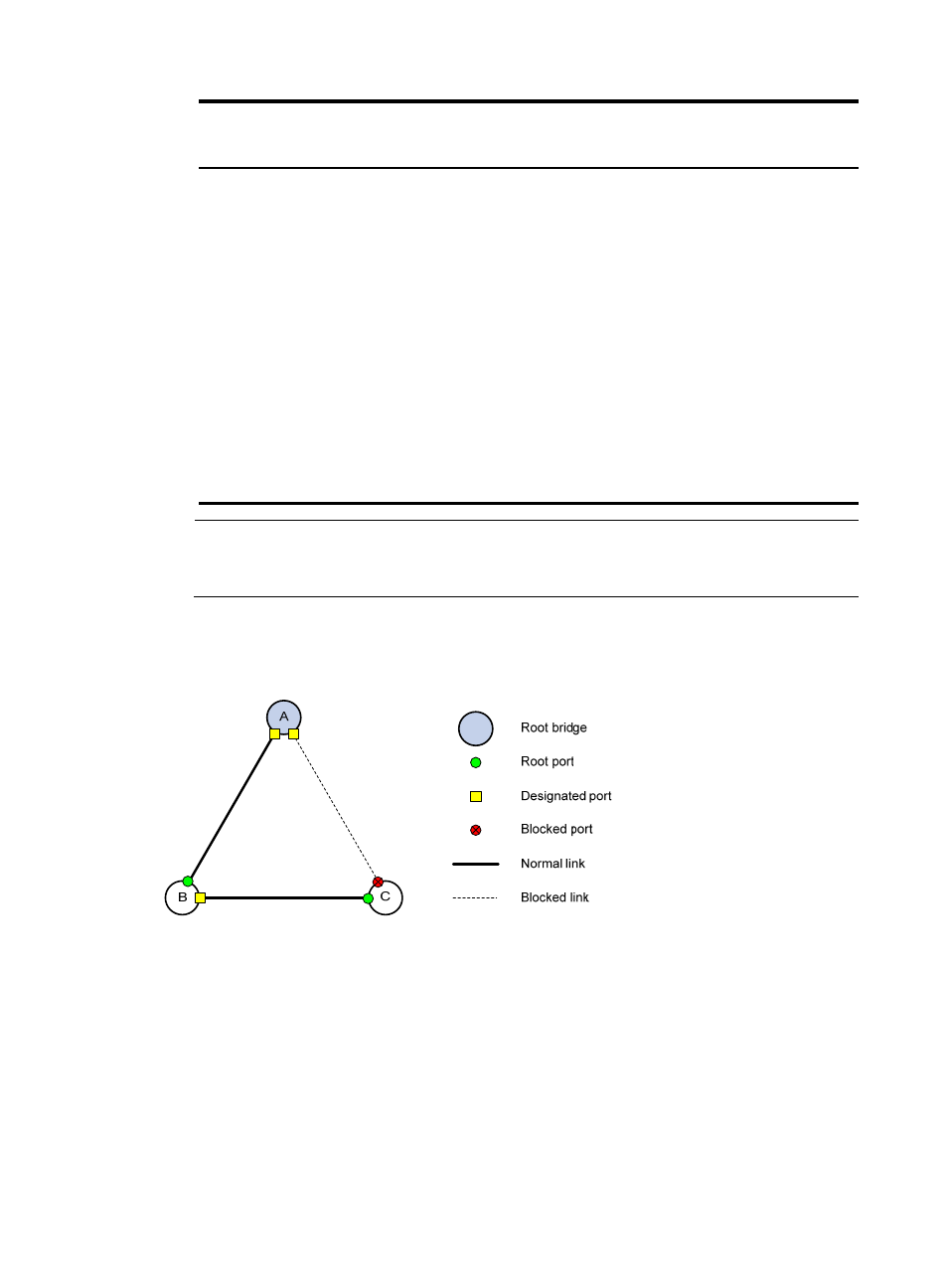The configuration bpdu forwarding mechanism of stp – H3C Technologies H3C S12500 Series Switches User Manual
Page 73

60
Device
Comparison process
Configuration BPDU
on ports after
comparison
•
Device C finds that the root path cost of Port C1 (10) (root
path cost of the received configuration BPDU (0) plus path
cost of Port C1 (10)) is larger than that of Port C2 (9) (root
path cost of the received configuration BPDU (5) plus path
cost of Port C2 (4)), decides that the configuration BPDU of
Port C2 is the optimum, and selects Port C2 as the root port
with the configuration BPDU unchanged.
•
Based on the configuration BPDU and path cost of the root
port, Device C calculates a designated port configuration
BPDU for Port C1 {0, 9, 2, Port C1} and compares it with the
existing configuration BPDU of Port C1 {0, 0, 0, Port A2}.
Device C finds that the existing configuration BPDU is
superior to the calculated one and blocks Port C1 with the
configuration BPDU unchanged. Then Port C1 does not
forward data until a spanning tree calculation process is
triggered by a new event, for example, the link between
Device B and Device C is down.
•
Blocked port (Port
C1): {0, 0, 0, Port
A2}
•
Root port (Port C2):
{0, 5, 1, Port B2}
NOTE:
In
, each configuration BPDU contains the following fields: root bridge ID, root path cost,
designated bridge ID, and designated port ID.
After the comparison processes described in
, a spanning tree with Device A as the root bridge
is established, and the topology is shown in
.
Figure 18 The final calculated spanning tree
The configuration BPDU forwarding mechanism of STP
The configuration BPDUs of STP are forwarded following these guidelines:
•
Upon network initiation, every switch regards itself as the root bridge, generates configuration
BPDUs with itself as the root, and sends the configuration BPDUs at a regular hello interval.
•
If it is the root port that received a configuration BPDU and the received configuration BPDU is
superior to the configuration BPDU of the port, the device increases the message age carried in the
configuration BPDU following a certain rule and starts a timer to time the configuration BPDU while
sending out this configuration BPDU through the designated port.
•
If the configuration BPDU received on a designated port has a lower priority than the configuration
BPDU of the local port, the port immediately sends out its own configuration BPDU in response.